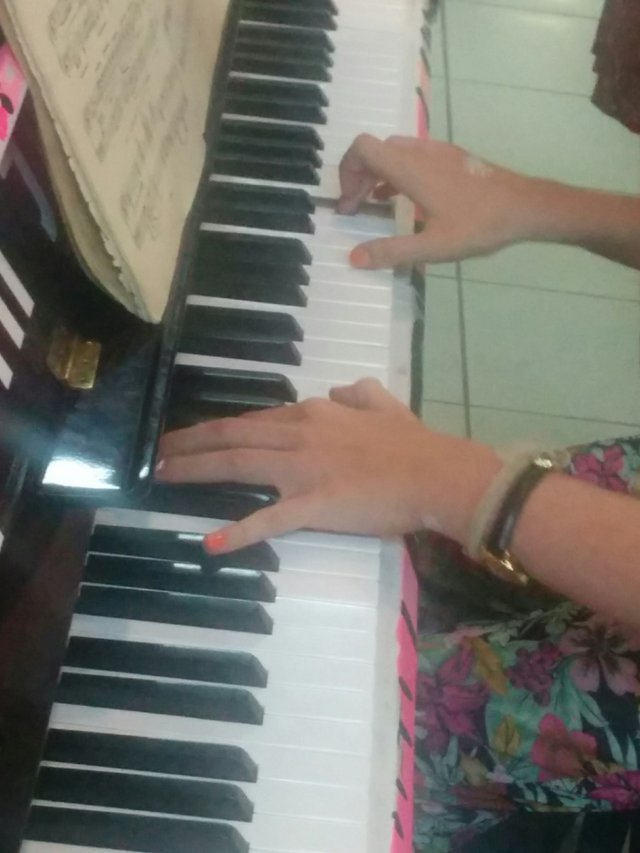Composed services and the Blockchain, part 1 - Introduction
What are composed services?
Jack is a songwriter. He wrote some songs and he thinks they're good. His friends think they're good too. They say he should find someone to compose music to his lyrics, and that they should make a record. If Jack wants to do that, he doesn't have too many real options. Yes, he can go and find someone to write the music, and then find yet other people to sing the song, play the music, record and mix everything and sell the record. Most songwriters would not even get started with this kind of venture. They are just songwriters, not entrepreneurs.
Traditionally, if Jack was to do anything at all, it would probably be to go working with some production company or a records label, that would rip him off his intellectual property and take most of the incomes on his artworks to itself, leaving him with just small change. Of course in recent years, some solutions were made available, like Bandcamp and Pledge Music, that enable artists to keep a greater share of the revenues on their songs and music, but they don't really solve the problems that are intrinsic to how music is made and sold.
A composed service, is a service that is made out of sub services that are interdependent on one another to create value. A song without music, is worth less than a composed song, and likewise, music without words may also be worth less than a composed song. And then of course, songs have to be heard by an audience to be worth anything, and in between when they are written to when they are distributed and heard, there is a whole interdependent value network. This structure is characteristic of many other areas besides the music industry, such as the film industry or journalism. And when you think about it, the software industry may also fall in this category. Aren't Google and Microsoft also just giant composed services organizations?
The problem with composed services, is that they tend to create a very unfair revenue distribution scheme. This is because their income flow is top-down, while their value flow goes bottom-up. Most of the value is a result of the creative forces at the bottom of the network, but because of the complex interdependencies, those at the top of the network have more control over the bottom line value of the composed service, and accordingly, they can take the lion share of the revenues to themselves.
The creation of composed services organizations with a more fair revenues distribution scheme, will require a solution that will enable the organization to assemble from the bottom up, while allowing the participants to facilitate its income distribution model, as it is built and in a way that will ensure fairness. This mode of operation poses two main challenges. The first is how to ensure that potential participants will find one another and create the best partnerships out of many possibilities, and the second is how to negotiate and facilitate the contracts and other arrangements, needed to ensure a fair distribution of revenues.
If you know anything about the Blockchain technology, you probably begin to see how it can be a great solution, at least for the second challenge. In fact, there is already and Ethereum project, called ujomusic, that will enable musicians to build microcontacts that will facilitate the revenue distribution of their common artwork.
As to the first problem, although it is less obvious how the Blockchain can be used to solve it, the fact is that it does, and actually, this is the more interesting part of the story. The way to Blockchain technology can help the potential participants in a bottom-up composed service organization, is based on an idea called, “Mutual search”, which I will explain in the second post of this series, but let me finish this one by explaining briefly what it is.
If we want to find other people online, we know what to do, right? We just Google them up! We all got used to search for “A plumber in Tel Aviv area”, for example. Google will probably point us to a yellow pages like website, or in more and more cases to their own databases. But in the case of Jack the songwriter who is looking for someone to compose his lyrics, is that the best method? Remember that at the same time, there are music composers out there, looking for lyrics. What if we could harness this mutuality, to create a batter search mechanism?
Well, the Blockchain enables us to do that, and it does because enabling and facilitating mutual searches is one of the ways by which economies are acting as a problem solving mechanism. So wait for the next post in the series, and you will see how.
Disclaimer: This post series is given to you as food for thought. It is by no means a call for taking any actual steps towards the development of any software service, or anything else. Of course, I would be very happy if something real will come out of my ideas, but again, that is not my intention 
WOW - it's almost like the phenomenon of multiple discovery isn't it? Thank you for commenting on my introduction post. I am resteeming this.
Thank you.